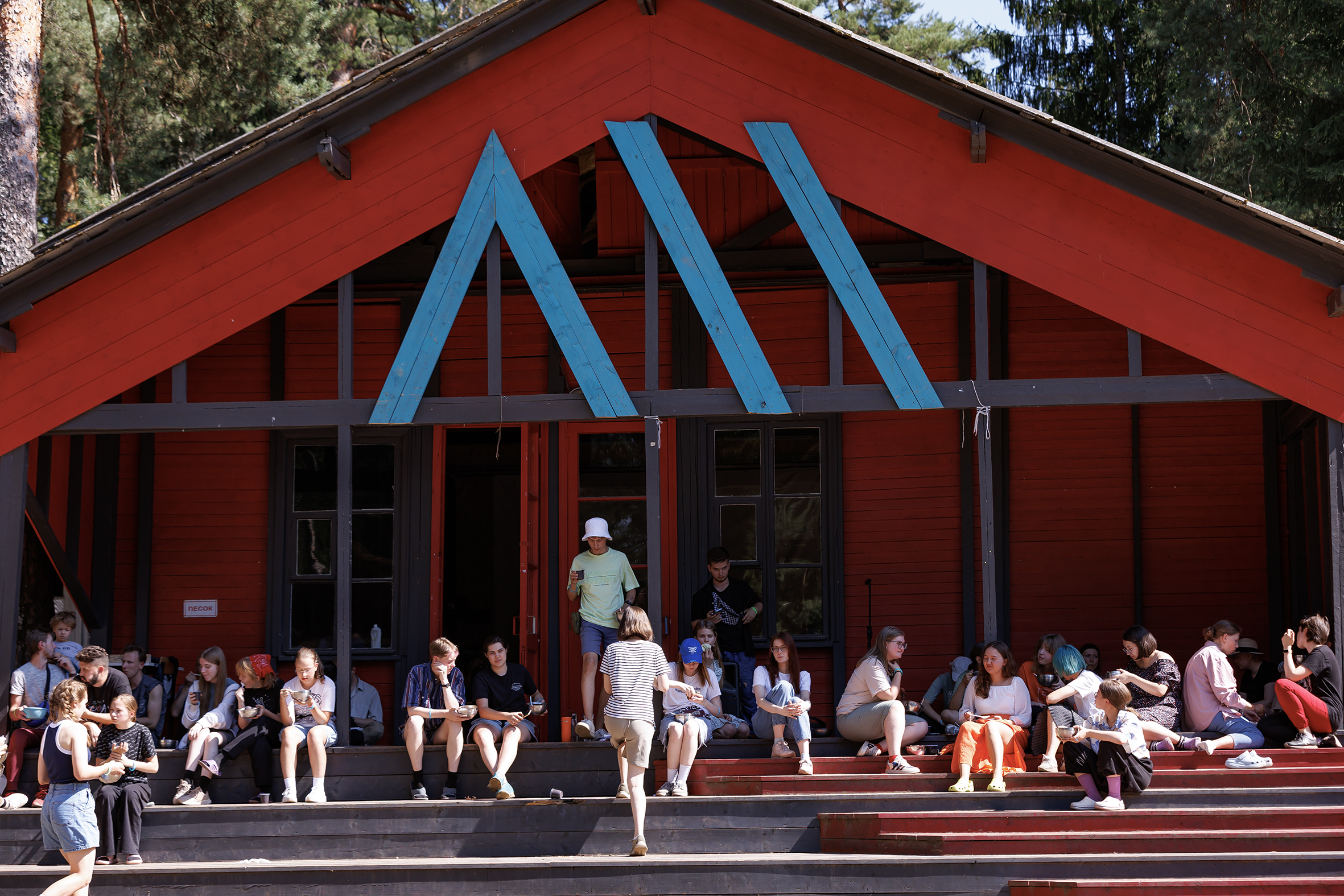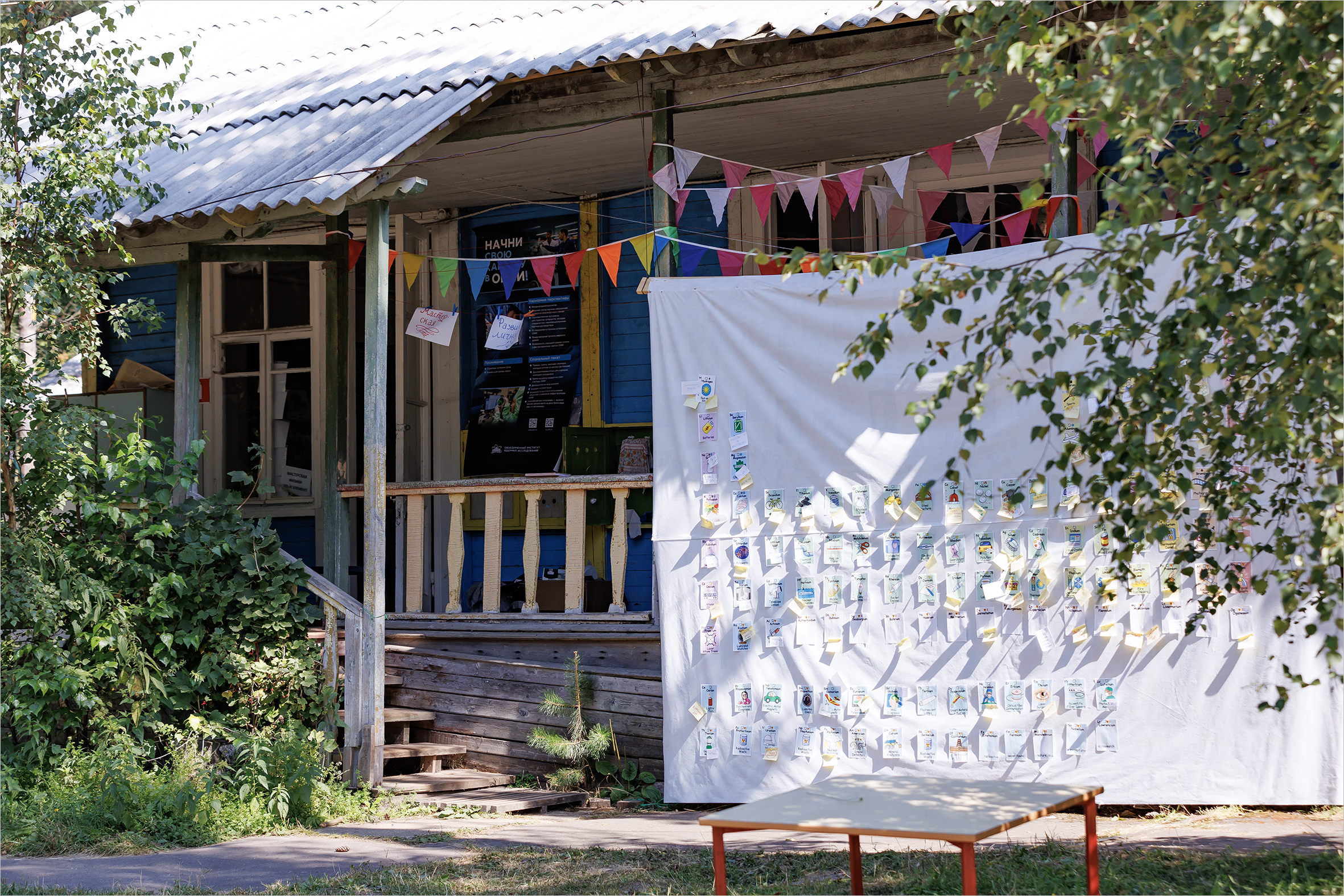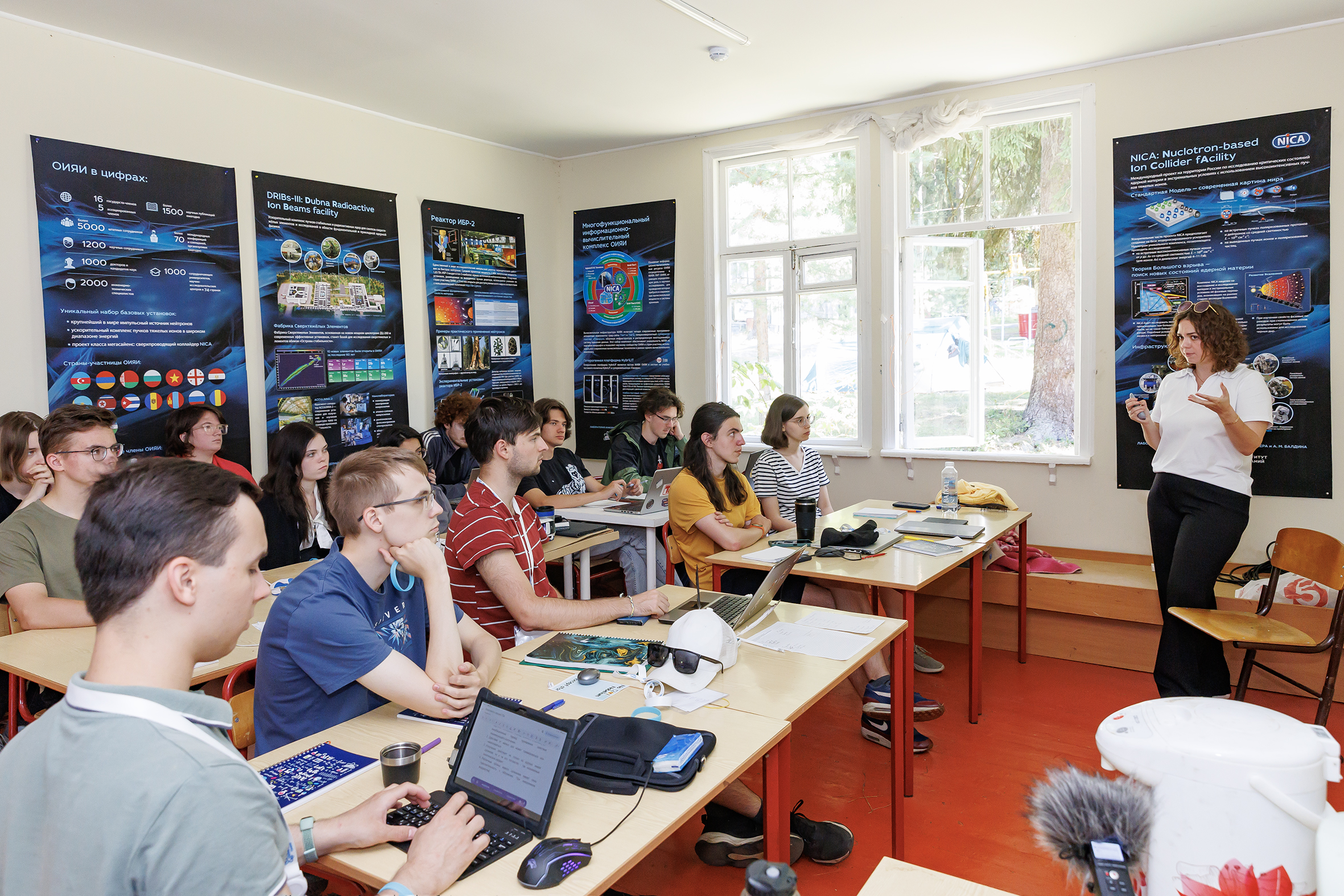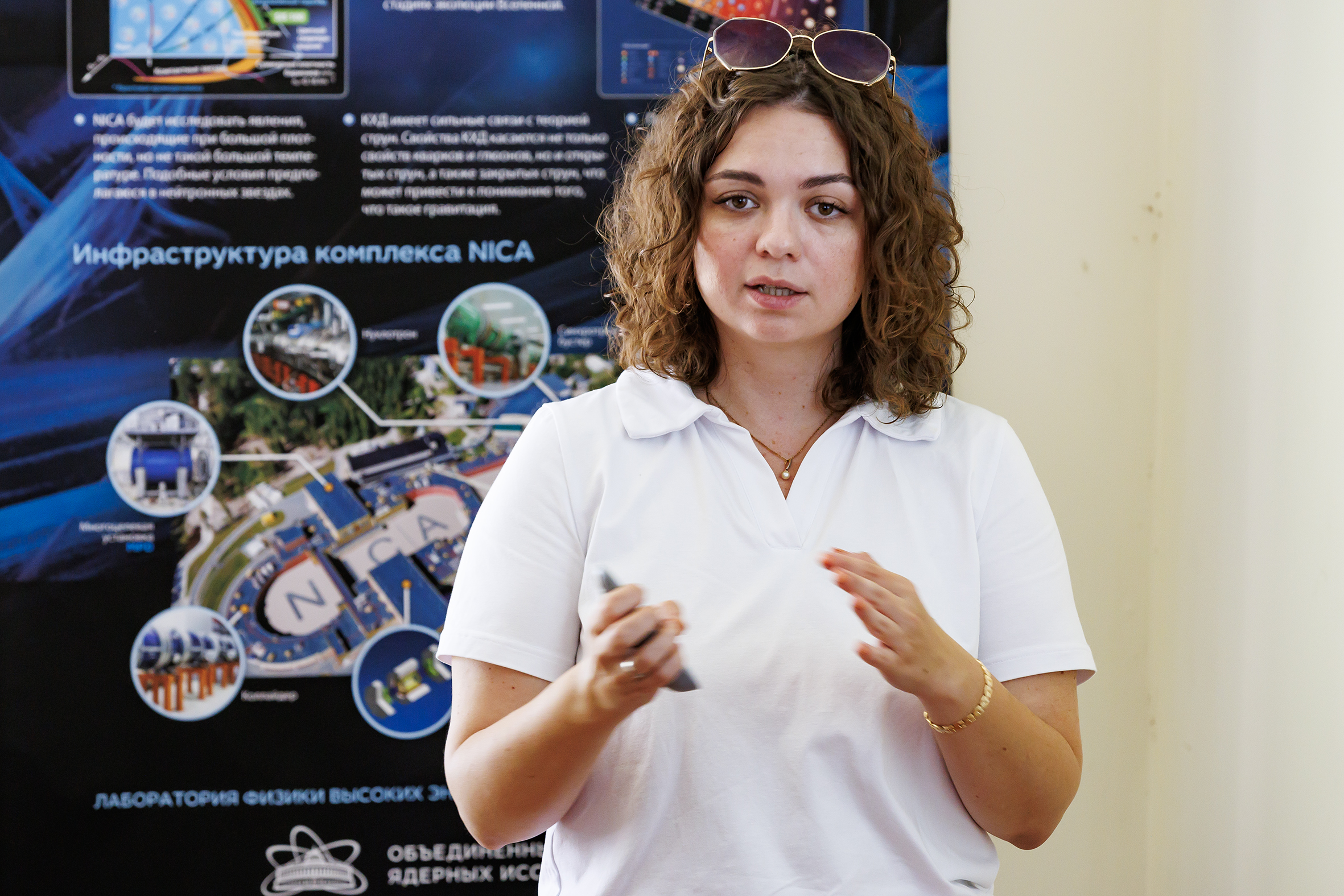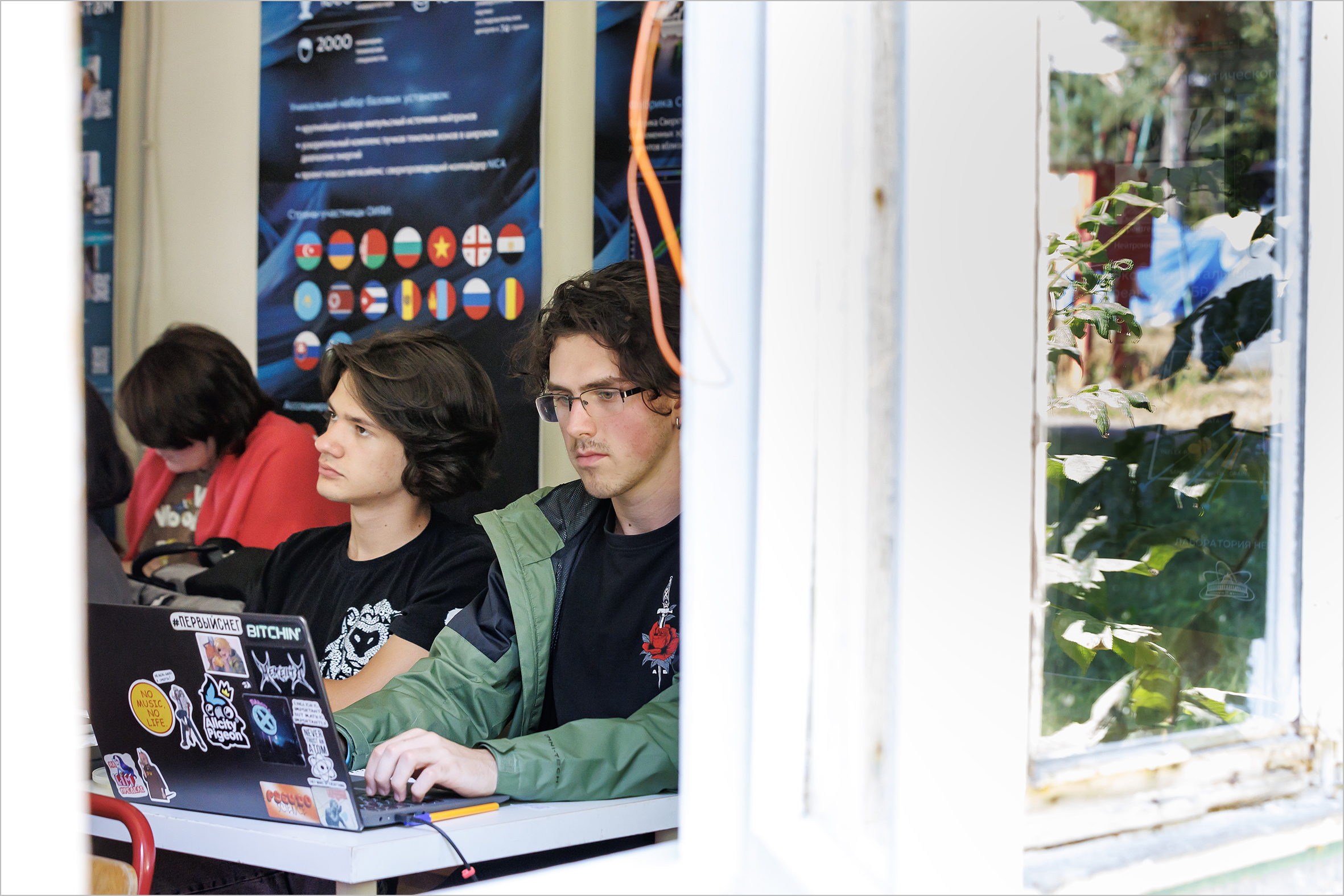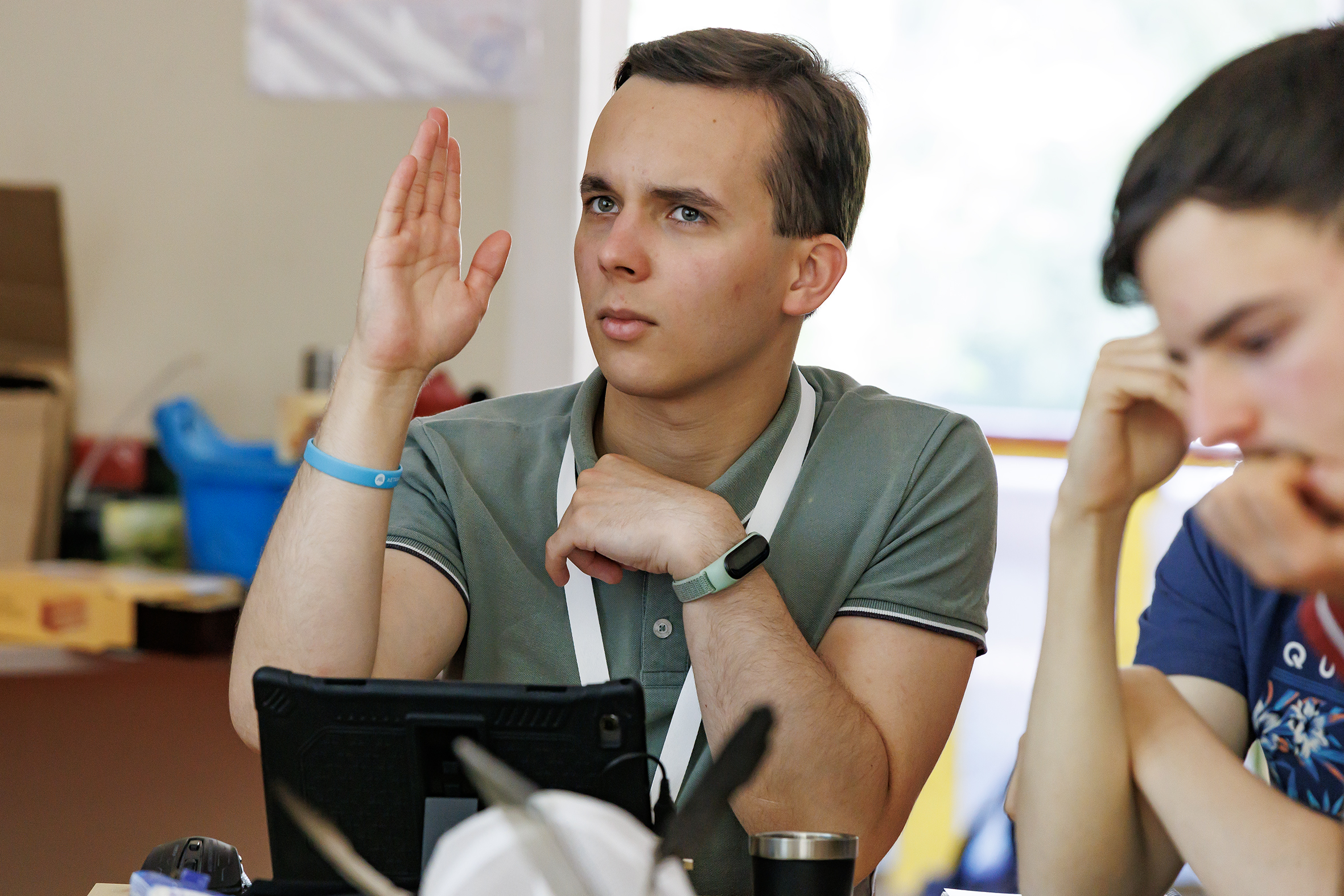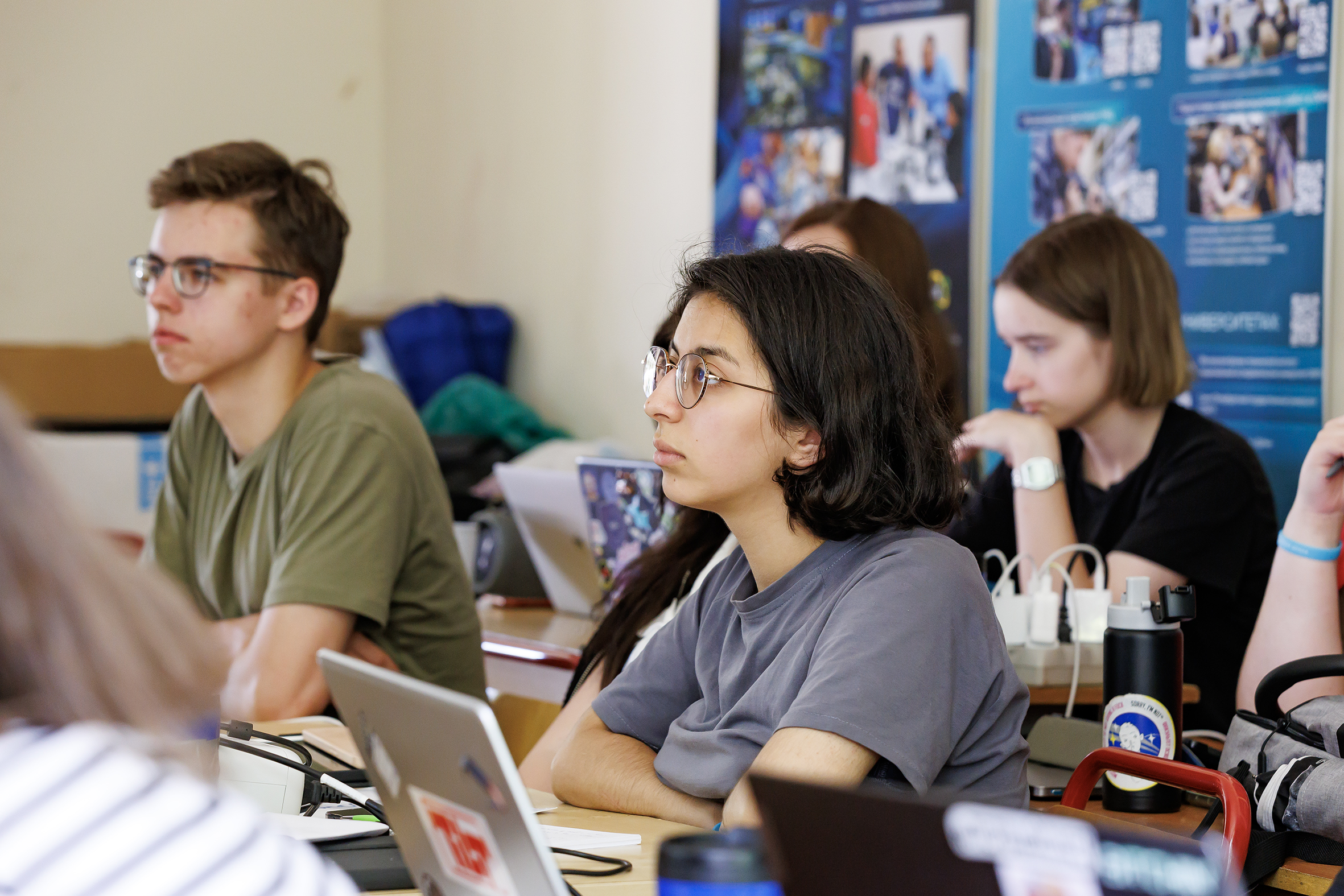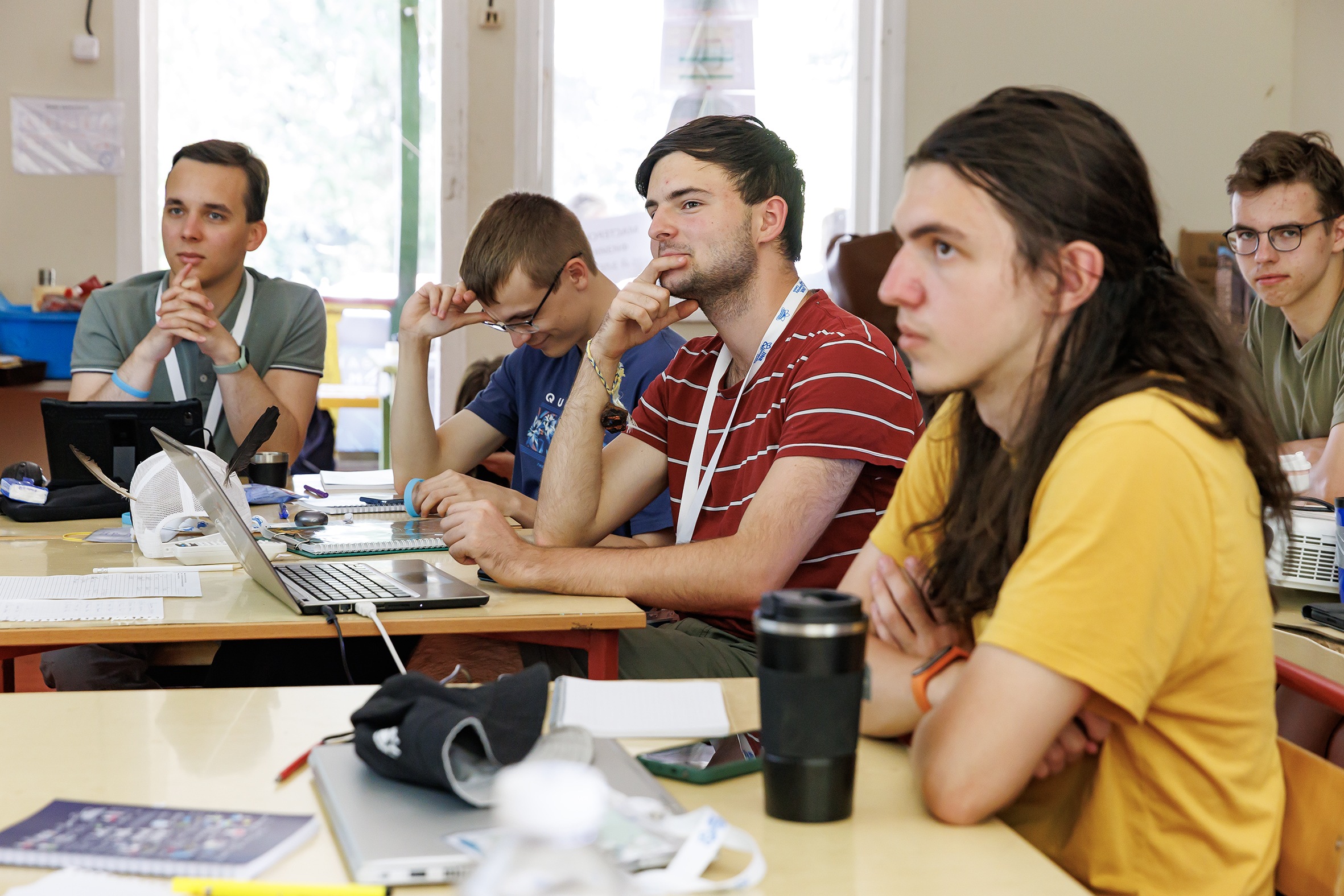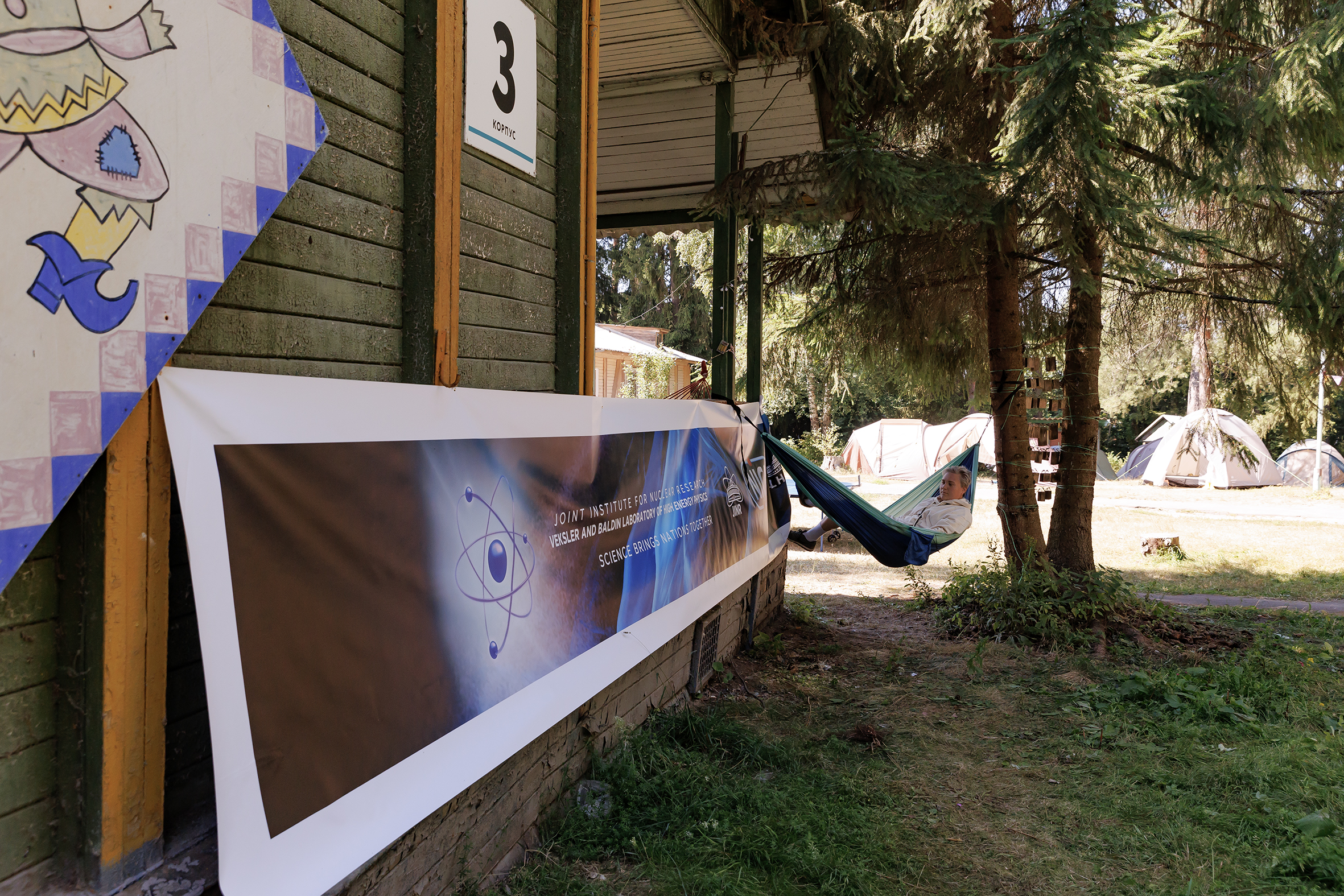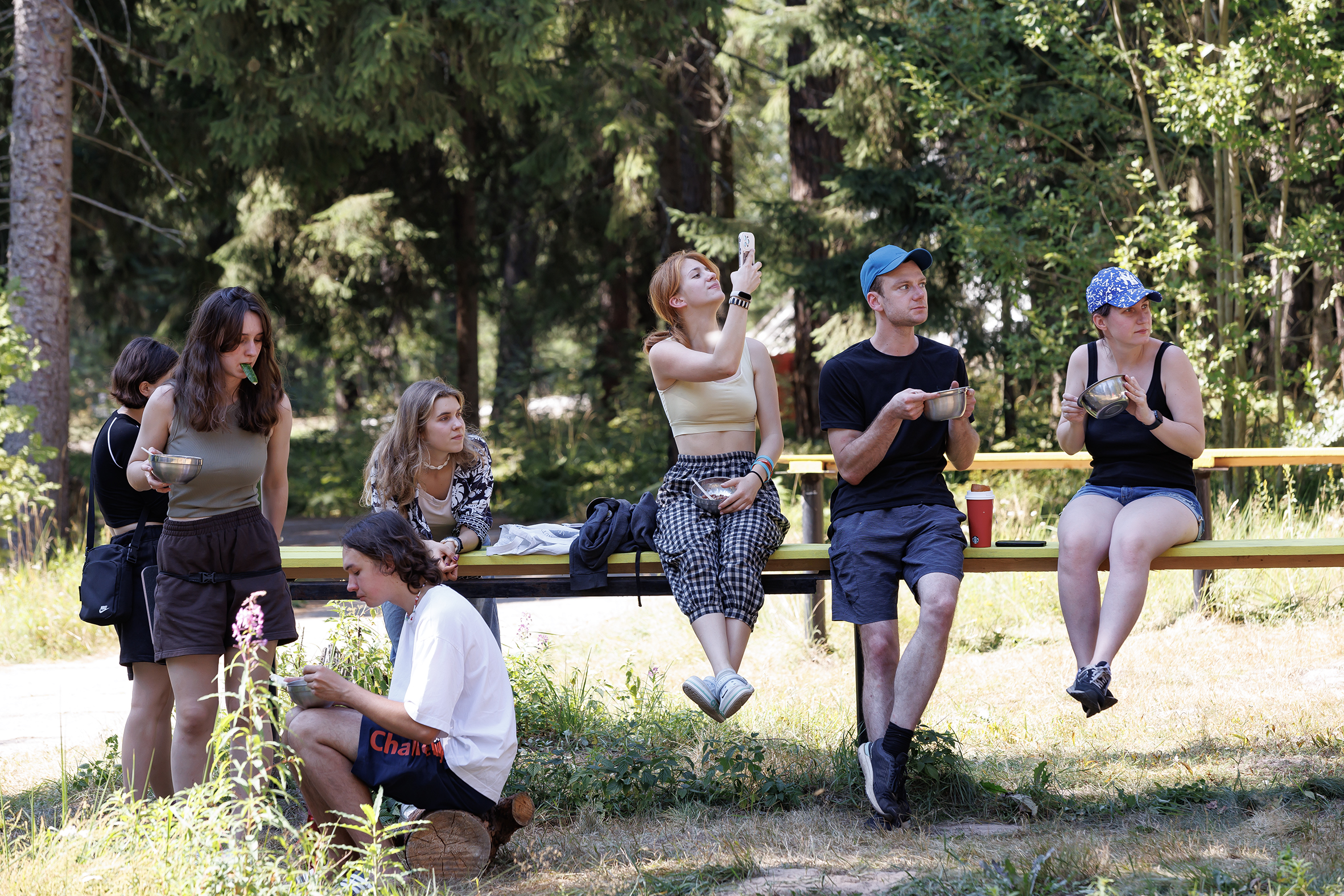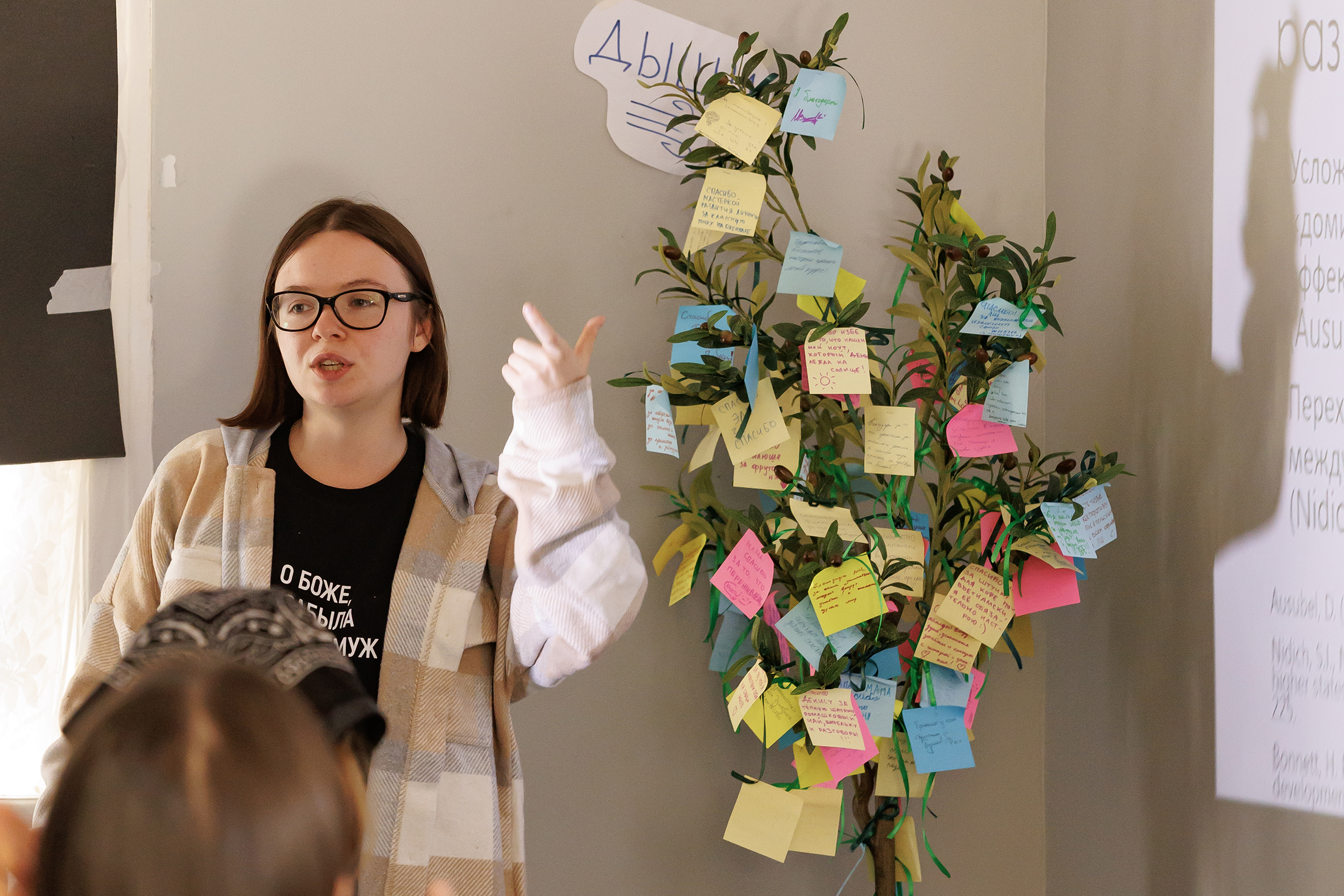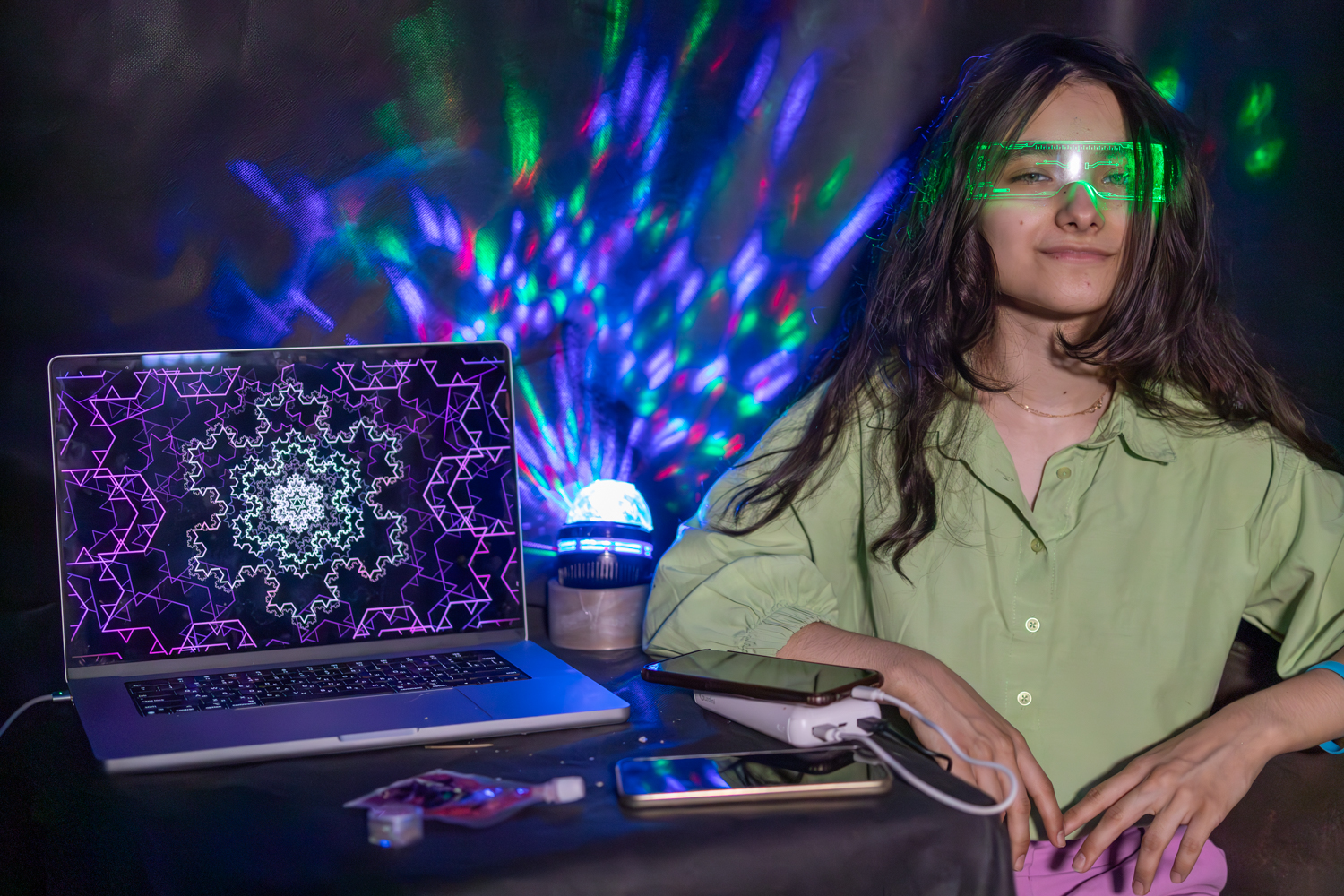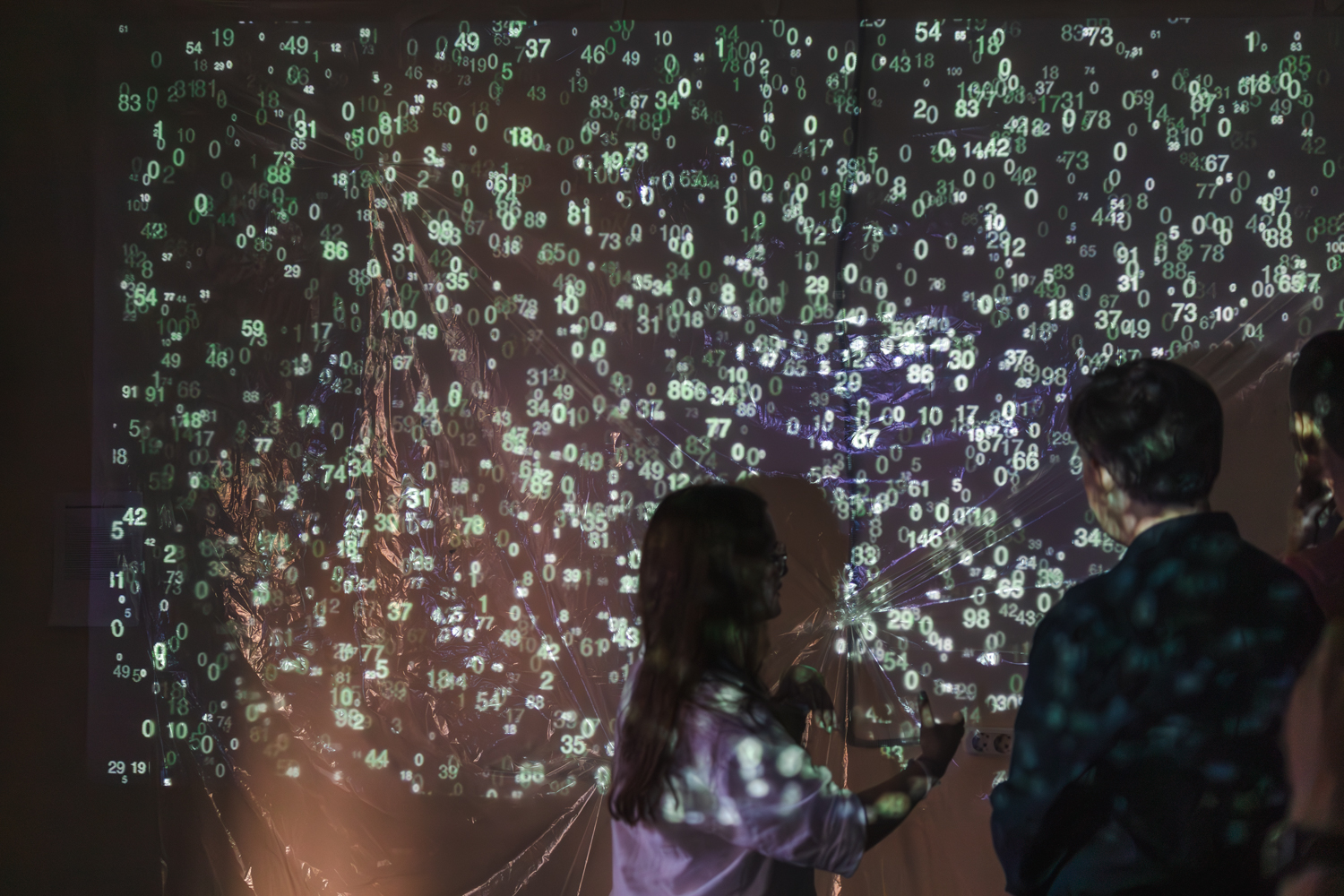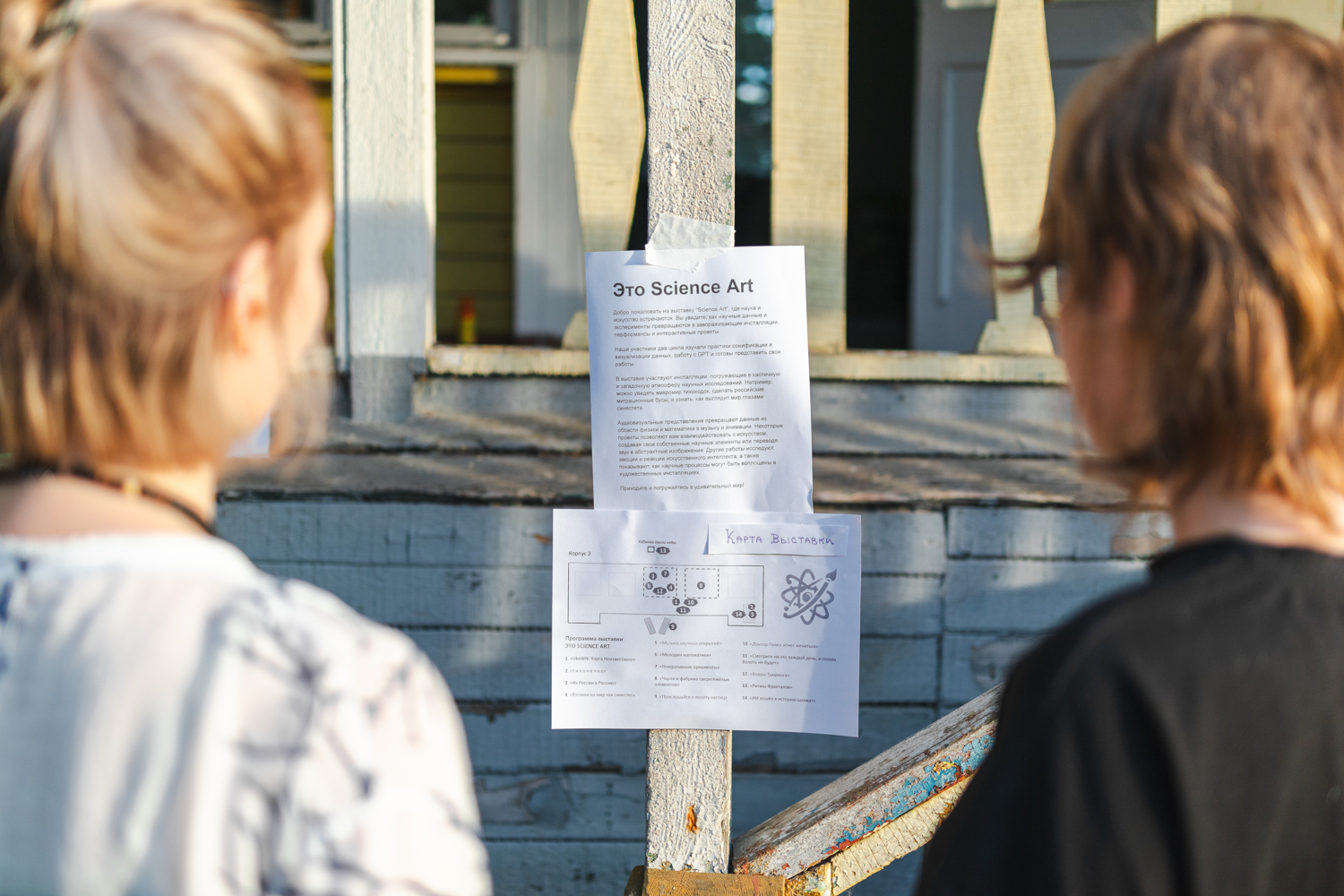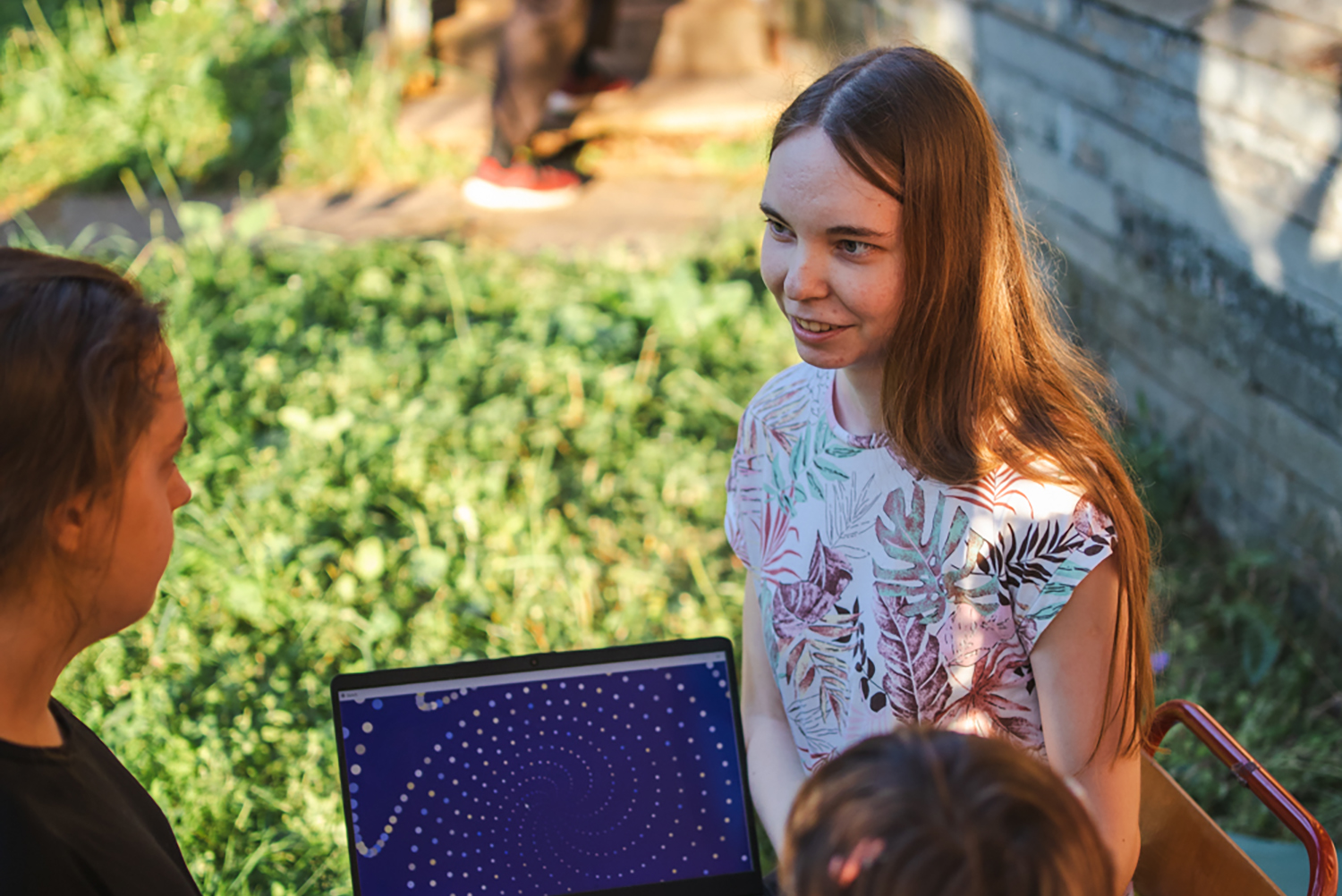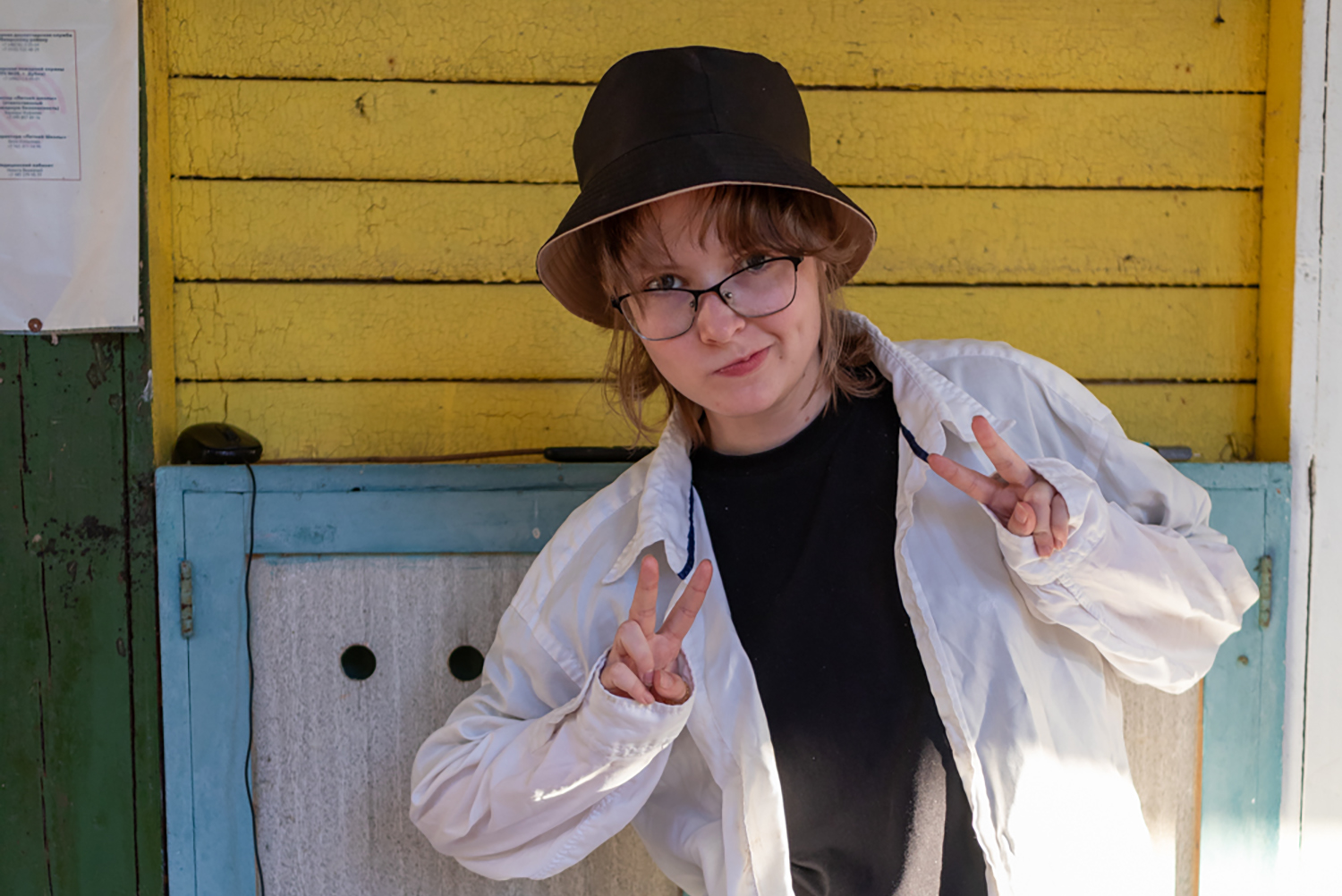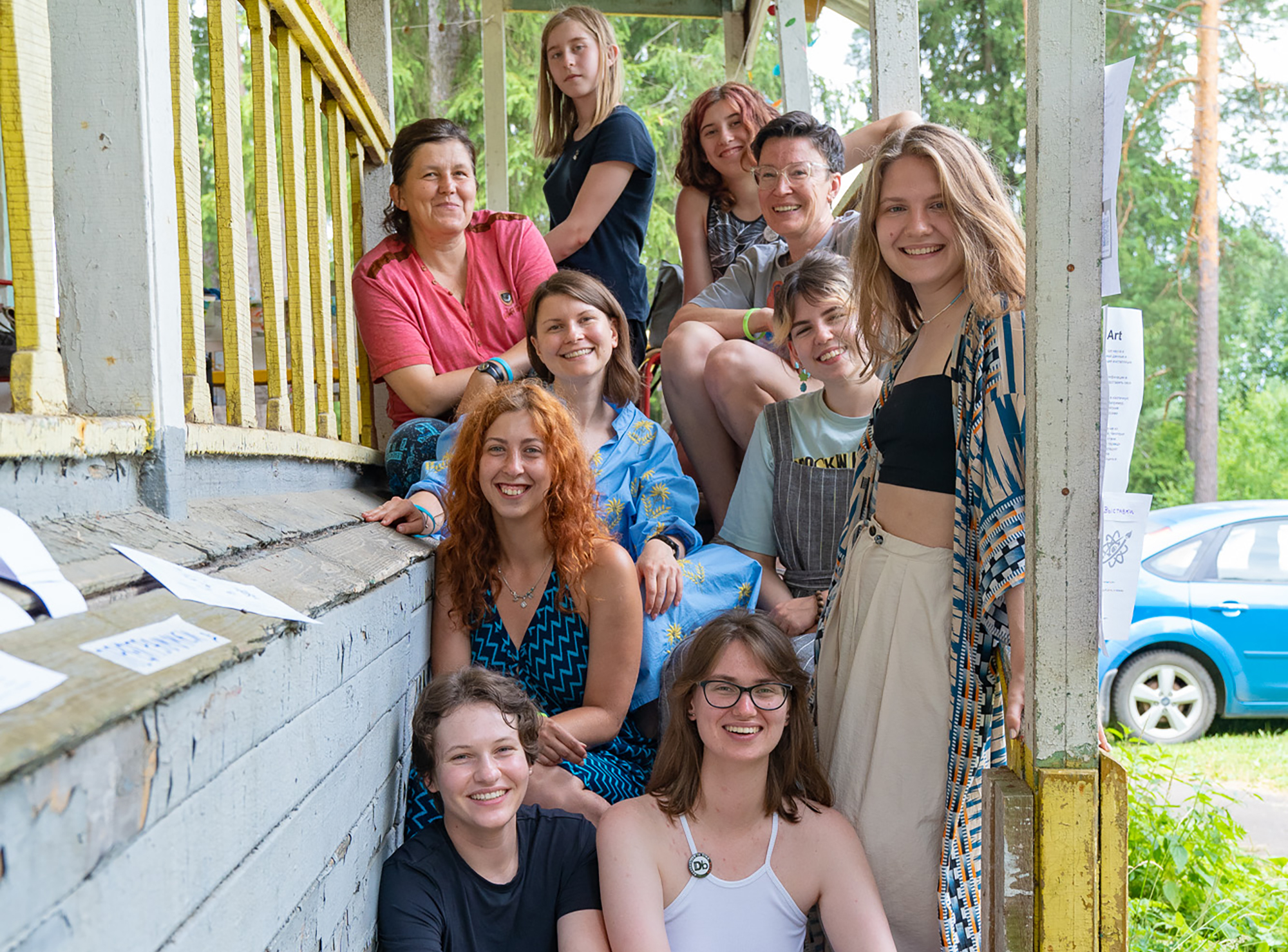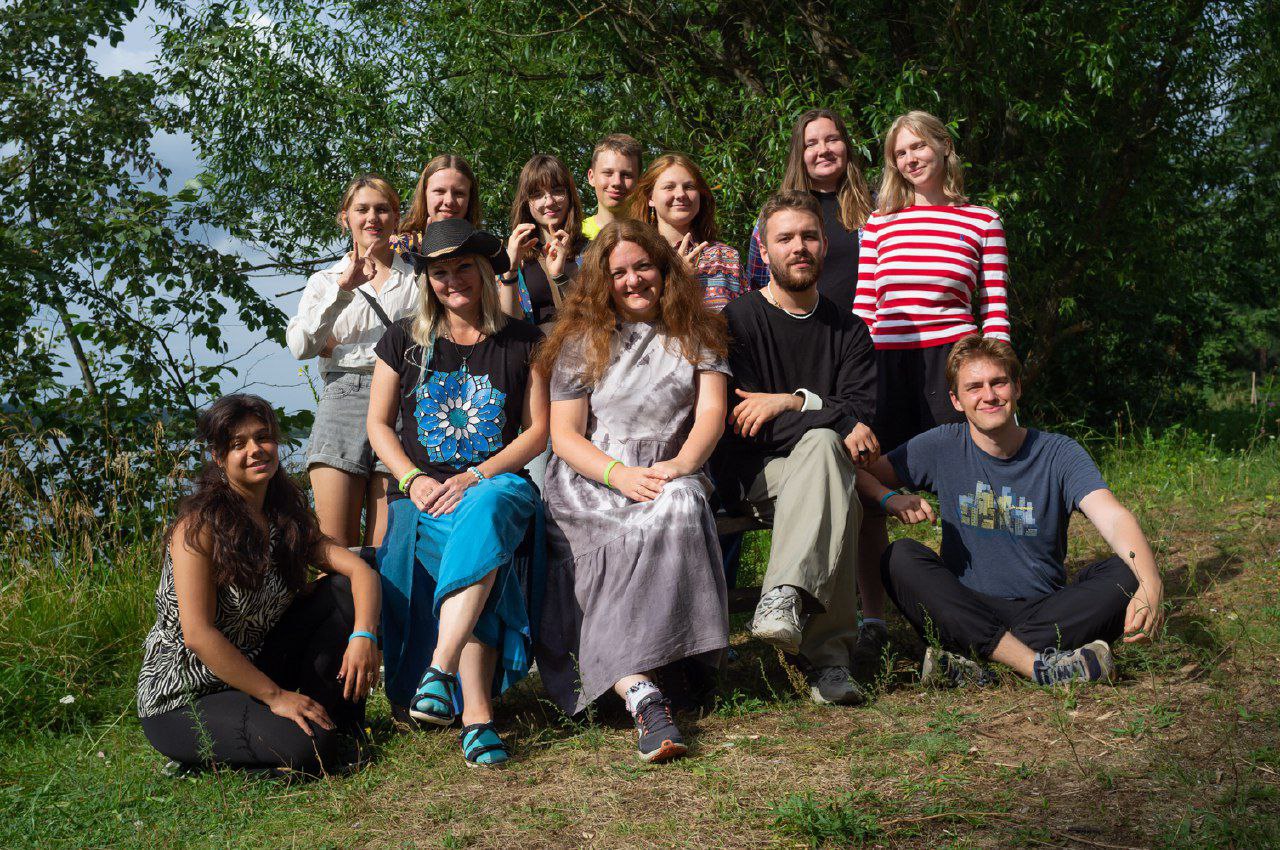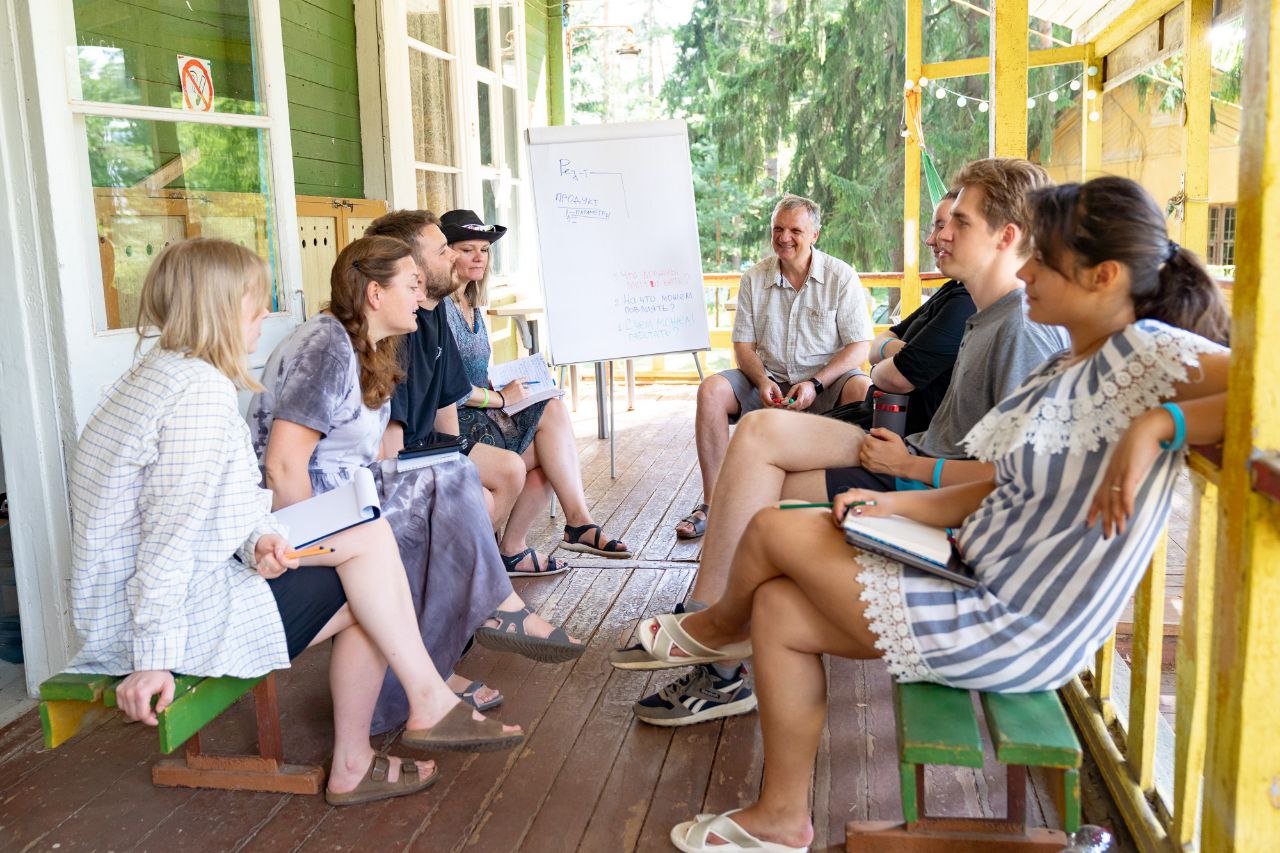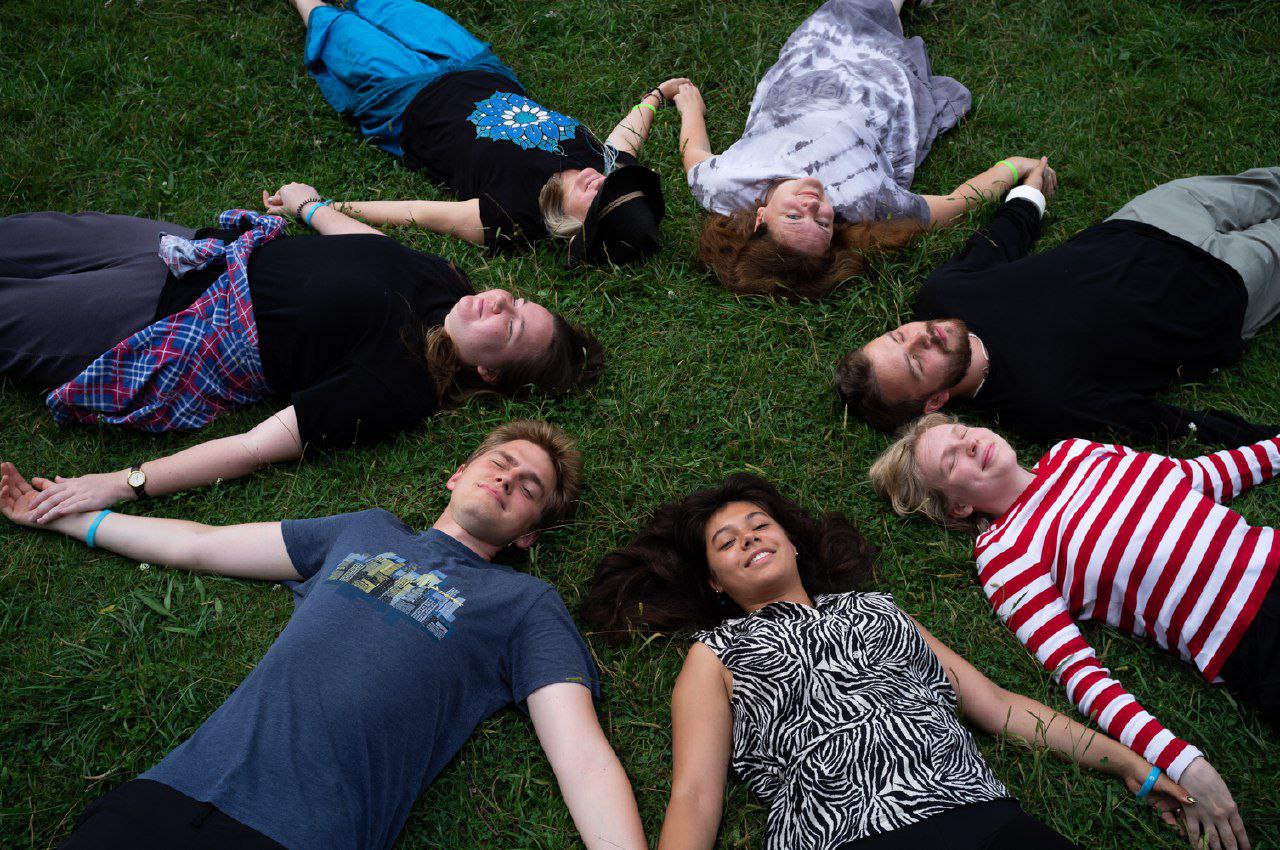JINR organized four workshops of 2024 Summer School
News, 06 August 2024
From 5 July to 5 August 2024, the 21st Summer School, one of the largest public educational projects in Russia, took place in the Volga Tourist Resort of the Joint Institute for Nuclear Research. JINR employees participated in organizing four of the school’s more than 30 workshops: the Element 105 Physics Workshop, the Science Art Workshop, which combined art and science, and two workshops dedicated to organizing social and cultural events and projects: PROteens and (NON)library.
Element 105 Physics Workshop
This is an annual Summer School workshop, held since 2013. This year’s organizers are employees of the Joint Institute, representing the UC, LRB, DLNP, and VBLHEP at JINR. The participants were students of Moscow State University, Moscow Institute of Physics and Technology, Moscow Engineering Physics Institute, Saint Petersburg State University, universities of Tula and Novosibirsk. Most of the students study physics, but radiobiology, mathematics, and IT majors participated as well.
“Everyone was very active, demonstrating extensive knowledge in particle and nuclear physics. At the beginning of the workshop, the students were tasked with preparing a presentation on a research topic that interested them, and they delivered their reports on the workshop’s final day, 4 August. All presentations turned out to be quite interesting and received high grades from the committee. Based on the results, several people were selected to visit JINR in the future and explore the inner workings of our Institute deeper,” Workshop Scientific Leader, a DLNP JINR senior researcher Anton Dolzhikov noted. The reports of the participants were devoted to black holes, neutrino experiments, thermonuclear fusion, gravitational waves, and other topics.
Each day featured two lectures by JINR researchers: Valery Shvetsov, Inga Zinicovscaia, Vladimir Zhaketov, Bulat Bakirov (FLNP), Kirill Gikal (FLNR), Mikhail Shandov, Alexey Aparin (VLBHEP), Vladislav Rozhkov, Liudmila Kolupaeva, Viktoriya Dik, Alexander Verkheev (DLNP), Iurii Severiukhin (LRB), Georgii Kalagov, Alexey Zhevlakov, Vsevolod Katkov (BLTP), Igor Pelevanyuk (MLIT). The lectures covered a wide range of topics: neutrino physics, medical physics, charged particle accelerators, the use of neutrons in ecology, ionising space radiation, a device aboard the Curiosity rover developed with the JINR participation, neural networks, the search for new physics, etc. The students took two excursions: around the Dubna science city and the JINR Basic Facilities, including the Superheavy Element Factory. In addition, the workshop featured a public speaking crash course.
Science Art Workshop
For the first time, the Summer School hosted a workshop to introduce the participants to science art, which explores research through artistic means. The first part of the programme covered the theory of utilising chatGPT, writing prompts, and working with sound, namely data sonification and generative art. The next activity was an excursion to JINR: to the DLNP JINR Green Lab, the Factory of Superheavy Elements, and the Phasotron. The participants then started working on their projects.
The students processed data sets, including data obtained at NICA and in tardigrade experiments. The arrays were transformed into sounds, and then into generative art. The end result of the workshop was an exhibition. Not all projects were devoted to the JINR experiments. For example, one of the participants programmed a text that becomes multicoloured when reading, so that the audience could imagine how her friend with synesthesia sees the world. Another student voiced the basic mathematical sequences: Catalan numbers, Fibonacci numbers, a sequence of squares of natural numbers, and a prime number sequence.
“Most of the students are either engineers or researchers already working with scientific information and looking for a creative outlet. Since almost all the exhibits can be viewed and listened to online, we are currently working on creating an online booklet that participants can use for their portfolio in the future. It will present the students’ projects, made in a week, with no experience in art and programming, through sheer talent and perseverance,” workshop co-director, Assistant to the Chief Scientific Secretary of the Institute for Social and Cultural Development Varvara Fufaeva said.
(NON)library Workshop of Social and Cultural Projects
During this workshop, the participants gained new knowledge and ideas on organizing engaging, effective, and in-demand social and cultural events at cultural institutions. Among participants were employees of libraries, museums, and students from 22 to 54 from Moscow, the Moscow Region, Belarus, and Stary Oskol, who have experience in holding events and establishing clubs.
Among the organizers of the workshop was JINR Blokhintsev Universal Public Library Director Maria Pilipenko. “One of our tasks as the Institute’s library is to provide leisure activities for its employees, serving as a “third place” where they can come in their free time. This is a challenging creative task. The summer school allows us to reboot, meet a lot of interesting people, and even invite them to organize lectures and projects at the library. This is a very important experience for me. I try to go to the Summer School every year. It’s my third time organizing it,” Maria Pilipenko shared her impressions. The Blokhinka Director emphasised that the workshop included the most motivated participants with interesting backgrounds, varying levels of work responsibility, and different experiences. But all of them are engaged, active, and very creative.
All participants introduced and discussed their projects with a wide range of experts supervising them. The curriculum was rich and intensive, including lectures on organizing project activities, event formats, using neural networks, interacting with a team, searching for resources, working with target audiences, properly organizing networking, and much more. For the biennale, a traditional Summer School event where all workshops present their programmes, a game was invented in the (NON)library to be implemented during future festivals in the Blokhinka.
PROteens Workshop
The workshop was dedicated to projects in which teenagers are the main actors, and adults are their curators. The workshop’s director was Blokhinka’s Senior Librarian Olga Gaponova, and among coordinators was a specialist in organizing Blokhinka events Evgenia Loboda.
“The workshop’s team consists of young adults who have already worked in projects with teenagers and who still have questions. They carry out projects not for or about teenagers, but together with them. The teenagers are co-authors, putting an equal effort in preparing an exhibition, an excursion, or a space,” Olga Gaponova commented. She noted that the collaborative nature of the project means horizontal interaction between the participants and the organizer, with the teenagers having the opportunity to act as co-organizers of events, understand their responsibility, and act independently.
The workshop brought together listeners from Russian cities from Kaliningrad to Yekaterinburg. Among the participants were representatives of the Olympiad movement, museum workers, a teacher of media classes from Moscow, a curator of the open space for teenagers of the I Believe in a Miracle charity centre.
Lectures in the workshop were given by leading university professors, educators, art historians, and psychologists. Among the speakers were the Director of the Future Time Foundation for Cultural, Research, and Educational Initiatives, the organizer of the Contemporary Science Film Festival CSFF, and the head of the Pushkin.Youth direction at the Pushkin Museum of Fine Arts.
The Blokhinka teenager team conducted a tour of the Institute District of Dubna for participants and teachers from Moscow. They independently made up the route and the story plan. The curators simply confirmed with them the schedule for visiting all locations on the tour. In addition, the teenagers helped prepare a Q&A session.
The Summer School fosters the atmosphere of freedom, equal connections, and deep engagement in the educational process, which highlights a variety of areas. This is what attracts participants and volunteers,” Olga Gaponova concluded.
In 2024, more than a thousand people from 15 to 56 took part in the Summer School. High schoolers, students, and young professionals acted as listeners and professors. The teachers were scientists, cultural workers, directors, writers, data journalists, musicians, teachers, sociologists, architects, and artists.
The educational programme of the Summer School is updated every year. This season, the school accepted students for over 30 directions of study: nuclear physics, biology, modern theatre, neurolinguistics, documentary and feature films, scientific and data journalism, architecture, modern dance, pedagogy, humanities, and many others.
The key feature of the Summer School remains its volunteer, non-profit nature. Even the most famous guests of the project, as well as teachers and organizers, do not receive salaries and fees. They are the ones making voluntary donations that go to food and organizational needs.
Photos by Elena Puzynina, Yulia Klyukina, Luka Semenova, and Alisa Potapova
